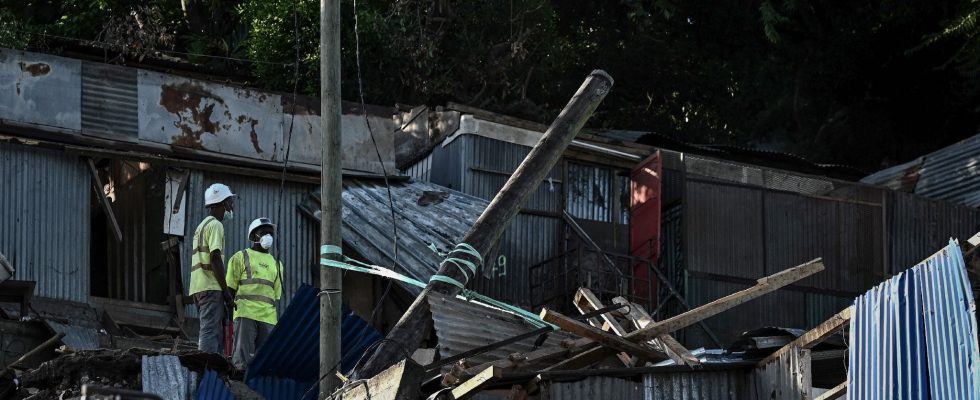Traveling to Mayotte this February 11, the Minister of the Interior, Gérald Darmanin announced that the “droit du sol” would be abolished on this French island in the Indian Ocean, paralyzed for three weeks by roadblocks against insecurity and immigration. Mayotte is plagued by corruption, violence and the situation continues to get worse. The island is today experiencing a form of economic blockade. The striking testimony of Carla Baltus, head of a transport company and president of Medef in Mayotte.
L’Express: While Mayotte is paralyzed by road blockages from residents who denounce insecurity, violence is becoming widespread on the island. What is the economic situation?
Carla Baltus: Currently, we live in chaos upon chaos… Clearly, we are in survival mode. Our cash flow is dry, we are no longer up to date with our social charges. And to talk about my business – a transport company – we are in mid-February and I have no idea how I am going to pay my employees at the end of the month. Payment times have exploded, customer invoices are not coming in because the entire economy is disorganized. The situation that we have been experiencing for almost three weeks is actually much worse than during Covid because the State aid instruments are not at all suitable. We need urgent specific support!
How do businesses continue to operate?
It’s extremely complicated. With widespread violence, gangs of looters and roadblocks every kilometer, employees cannot come to work. It is estimated that businesses are operating on average with only 25% of the workforce. Administrations are also operating slowly. Construction sites are almost all at a standstill. Worse, the port is completely clogged: due to lack of personnel, containers are no longer unloaded, storage areas are full to bursting, and perishable products are rotting on site. Since Wednesday, the carrier DHL has decided that it no longer ensures the delivery of packages arriving and departing from the island. It’s like a sort of confinement of the island. Pharmacies are having difficulty being supplied, ambulances are having difficulty transporting patients to hospital. If large retailers have stock, small neighborhood grocery stores are starting to run out of goods.
We too have an agricultural crisis! Farmers are finding it difficult to reach their farms and collect their crops while fishermen no longer take their boats out due to lack of fuel. And then, we must add the unfair competition exerted by uncontrolled immigration and an informal economy which is corrupting the entire economy.
Yet governments are multiplying emergency plans…
The first thing to do is restore security to the island. Operation Wuambushu, launched at the end of April in Mayotte, demonstrated that when we put human resources and law enforcement on the ground, we can hope for a form of return to calm. But unfortunately, this operation only lasted two months, and the additional police officers left. We lack gendarmes and police officers on the island. The second problem is illegal immigration. Why do illegal immigrants manage to break through the nets so easily? Today it is estimated that half of the island’s population is made up of illegal immigrants.
What economic support measures are you requesting?
A solidarity fund like the State was able to create during the Covid crisis, a postponement – and not a cancellation, I specify – of our tax and social debts. Better support from banks. For the moment, we are being offered a system of partial unemployment where the State would cover 60% of employees’ remuneration. But we will still have to pay the remaining 40%. But many do not even have sufficient cash flow. Which means a net loss of income for employees. In Mayotte, one employee supports between 5 and 10 people. The social consequences of this economic blockage are catastrophic. Today, businesses are slowly dying…
.
